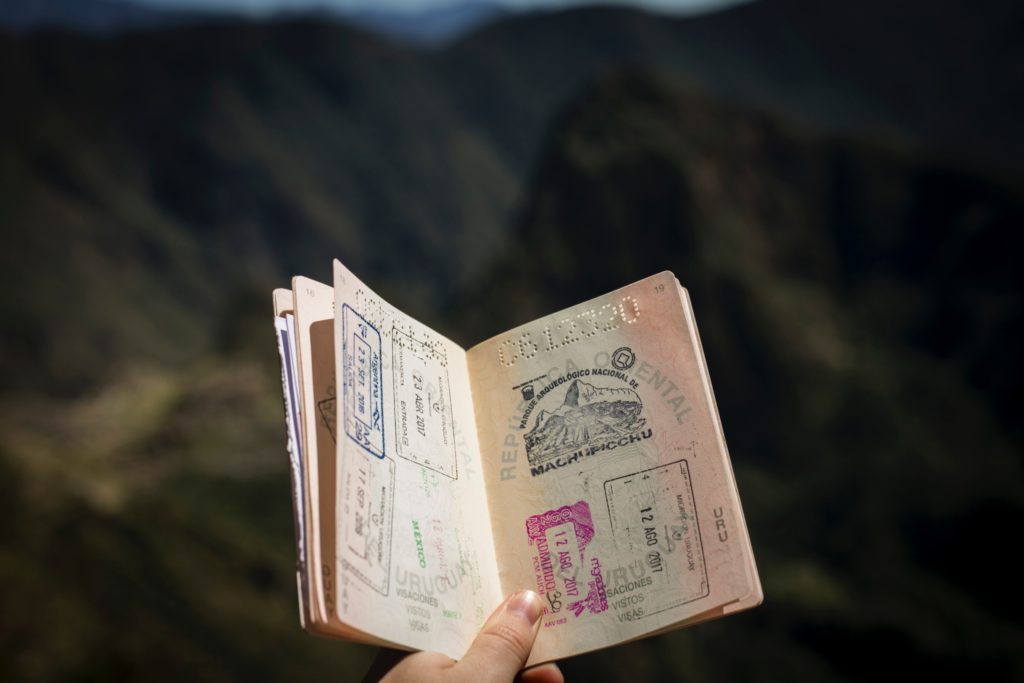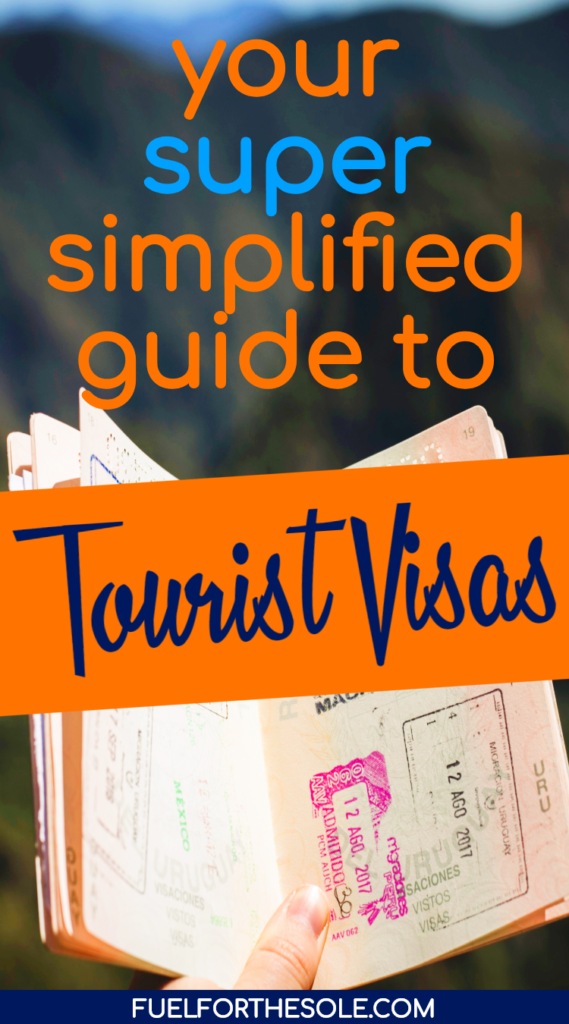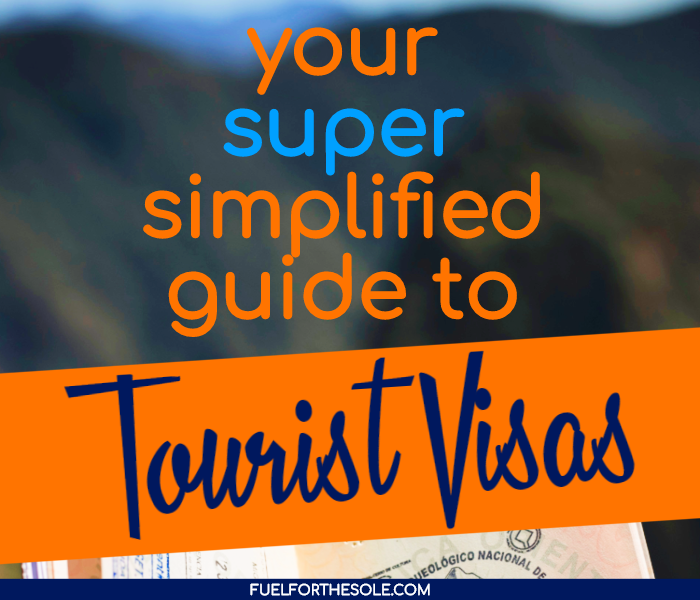I don’t know about you, but when I am planning a vacation, tourist visas are the last thing I want to think about.
I get so amped up planning all the exciting details of international travel that I don’t want the legal and technical side to bring me down.
But we found out it doesn’t have to be complicated.
We have put together a SUPER simple guide on everything you need to know about travel visas. A one-stop shop to learn about the different types of visas, the different rules between each country, how to find online travel visa agencies, and how to apply and get your documentation.
We’ve laid this out in a way we think even an 8-year-old could understand it. Because I know how tedious (and boring!) it is to research tourist visas.
Do you have any nightmare stories about trying to apply for a travel visa? We hope you don’t, but if you do, tell us your story in our comment section. ⬇️
International Travel Rules, Online Services & Application for Travel Visas

What is a Travel Visa and Why do you Need One?
A travel visa is a document that is issued out by a particular country’s government. This documentation allows you to legally enter and stay in a country for a specified period of time. Depending on your nationality and the country you are visiting, a visa may be required in order for you to enter it, stay for a certain period of time, and tour, study or work.
Each country has different types of visas, different rules and different allowable lengths of stay. So it is important to know what that country requires before
For a complete list of the different types of tourist visas in the US, check out the government website here.
Types of Visas
Transit Visas
Even if you are just passing through a country to get to another one, whether by car, boat or plane, you
A transit visa allows you to legally pass through a particular country. These types of visas are usually limited by short term stays from several hours to several days depending on the size of the country or type of transportation.
There are many examples of where you may need a transit visa. One example would be if you are traveling through Europe and passing through Schengen and Non-Schengen countries.
Short Stay Visas AKA Visitor, Tourist, and Travel Visas
If you will only be in a country for a short visit or vacation (usually 90 days or less), you may need a tourist visa to enter it.
There are different types of
Private visa
If you personally know someone who lives in the country you are visiting, and have been invited to visit them, you may need to apply for a ‘private visa’.
Tourist visa
This is the most common type of visa needed for a typical short term vacation. Tourist visas allow you entrance into a country for a limited period of leisure travel. You are not allowed to study or work with this visa.
Business visa
This visa would be for engaging in short term business within the country. This could be for a conference or short business transaction. This cannot be used for permanent
Working holiday visa
This type of visa allows you to work within a country for a short period of time (about 90 days). This type of visa is popular among young people who want temporary work while traveling.
Digital nomad visa
This is a new type of visa that may be needed for the ‘digital nomad’
Extended and Long Stay Visas
If you wish to stay in a country for a longer period of time (usually more than 90 days), then you need to apply for an extended stay visa. These visas allow you to stay in the country for a longer, but still finite, period of time.
There are a few different types of extended stay visas:
Student visa
A student visa allows someone to stay in the country to study at an institution of higher learning. This type of visa will end once the period of study ends.
Research visa
A research visa allows people to participate in fieldwork within a country.
Temporary worker visa
A temporary work visa allows you to work in a country longer than a ‘working holiday visa’ does. These types of visas are generally more difficult to obtain.
Okay. So those are the most common types of visas a tourist may need. But you still don’t know if you need one yet.
Well, it’s simple to figure out. All you need to do is take a few seconds to enter your home country and the country you are
Don’t be a fool, and travel like a pro! Travel can be exhausting and stressful – so make sure you bring along the right gear! Learn more about our top travel hacks in Top 10 Must-Have Items for Long Haul Travel and carry on these items to help improve comfort and reduce travel anxiety:
- J-Pillow Travel Pillow – Our FAVOURITE travel pillow 😄
- Hydro Flask 32 oz. Water Bottle
Physix Compression Socks – Keep yourself healthy on long flights- Alaska Bear Natural Silk Sleep Mask
- Sony Noise Cancelling Headphones – High quality and a budget price
What Countries Require a Tourist Visa?
If you are American or Canadian, you are lucky. Being a citizen of these countries allows you to travel pretty freely around the world without much need for a visa. However, there are some key countries to note that do require a visa, even for a short visit.
If you are a US citizen, there are 35 countries that require you to have a visa to enter it. This could include the need for a true tourist visa, or an Electronic Travel Authorization (ETA). And you need to have these prior to arriving at the country. Some of these countries include Australia, China, Saudi Arabia, Russia, Cuba, Venezuela, Brazil, and India.
As a Canadian, there are 33 countries you need a visa to enter. As a Brit, there are 35, and as an Australian, there are 37.
To find out the rules for your citizenship and for the country you are visiting, you can do a quick check on iVisa. They keep their databases up to date with all the newest regulations for each country.
What Countries Have ‘On Arrival’ Entry Visas?
You may see this term during your travel research. A country that offers ‘visa on arrival’ means that, yes, you do need a visa to enter that country. The only difference is that you don’t necessarily need to obtain that visa before you leave home. You can obtain it at the border once you arrive.
However, this does not
Luckily, even if the country has ‘on arrival’ visas, you can still apply for the visa at home. For me, I prefer to obtain my visa at home to allow the border crossing process to go as smoothly as possible. These visas can also be obtained through an online service.
As a US citizen, there are 47 countries labelled as having ‘on arrival visas’. Some of these include Vietnam, Turkey, Egypt, Mexico, and the Dominican Republic.
As a Canadian, there are 51 ‘on arrival visa’ countries. As a Brit, there are 45, and as an Australian, there are 55.
Where Can you Travel Without a Visa?
As a US citizen, you can travel to 166 countries without a visa. Some of these countries include Canada, Japan, Thailand, Malaysia, the Philippines, and Costa Rica.
As a Canadian citizen, you can travel to 172 countries without a visa. As a Brit, you can travel to 174, and as an Australian, you can travel to 160.
However, even if no visa is required, there is still a time limit for visiting each country. Most countries allow you to stay for 90 days. Some allow 30 days and some up to 180 days. Check with an online visa agency to see what your allowable time limit is.
If you want to travel for a longer period of time, you will need to apply for an extended stay visa.
And even though there may be ‘no visa required’ in that country, this does not guarantee entry. You still need to follow the rules of that country to be allowed access. In order to ensure a smooth entry, make sure you have the following with you:
- A passport that is valid for 6 months past the date that you will enter the country.
- A passport that contains at least one blank visa page. If the pages of your passport are full of stamps, you need to apply for a new passport.
- Proof of sufficient funds to sustain you throughout the length of your trip.
- Proof of a return flight to your home country, or a flight through to another country.
Are you looking to travel more this year? Learn our best travel tips and hacks in our posts on budget travel here:
- ‘How to Travel the World for Free’
- ‘How to Find Budget Accommodation and Lodging Anywhere in the World’
- ‘Things to do for Free While Traveling’
- ‘Tips to Maintain Your Food Budget While Traveling’
- ‘How Overland Travel Allows you to Travel for Months at a Time’
How to Apply For and Get a Tourist Visa
The process of getting a visa does not have to be complicated at all. Just follow these simple steps.
Do Your Research
The rules on tourist visas can change quite frequently within a county. Some less developed countries can change their rules monthly, depending on their political and economic situation.
The best place to start your search is by checking online through a visa agency. These third party sites make it simple and it takes seconds to check if you need a visa for your trip. We find iVisa to be one of the best sites to use because they have a world-class visa requirements tool to ensure the most up-to-date information is available to you.
It is always good to back up this information with the official word of the country you are visiting. Check the consulate website for the country you are visiting to see if there are any changes in requirements.
If you want to make 1000% sure you have the most up to date information, you can call your country’s embassy or the embassy of the country you will be visiting.
Apply for Your Visa as Soon as Possible
If you know you need a visa, make sure you apply for it ASAP. The process could take up to a few months (although it is usually complete within a few weeks).
Most ETAs and tourist visas must be obtained before leaving your country. It is best to take care of everything at home. You may be denied entry if you do not have a visa when you arrive in a country that requires one. And they may not pay for your flight home.
Apply for Your Visa Online
After you have found out that you do need a visa, it is easy to apply for one online.
If you are working through iVisa, they will supply you with the appropriate application forms, inform you of any extra requirements, deal with the embassy for you and then send you the completed documentation.
Once you have your documentation, you simply bring it with you to display to border officials when entering the country.
Possible Extra Requirements
Whether a tourist visa is required or not, there may be extra travel requirements that you must meet in order to be allowed entrance into your destination country. So it’s a good idea to have these at your disposal.
These extra requirements may include:
- Having official passport sized and approved photos.
Taking an interview with the embassy.- Providing bank statements.
- Providing proof of certain vaccinations.
Are you planning your next vacation? Let us help make your next trip go smoothly with our travel planning posts:
- ‘Travel Planning Resources: How to Learn About Your Destination’
- ’10 Essential Items you Need for Long Travel Days’
- ‘How to Stay Safe While Traveling: 30 Tips That Could Save Your Life’
- ‘How to Save Money Every Day so You Can Travel More’
What is the Duration of a Tourist Visa?
Whether you are entering a country that requires tourist visas or not, you usually have about 90 days to stay in that country. Sometimes the duration is up to 180 days. Again, this is a quick check on an online visa site.
If you plan to remain in a foreign country for more than 90 days, you will most likely need an extended stay visa.
What are the Costs and Fees Associated With a Tourist Visa?
The cost of ETAs and tourist visas vary from country to country. You can usually expect it to cost you between $25 and $100 USD.
If you have an online third party to take care of your visa for you, there will be an extra service fee (usually $20 to $49 USD). If you have ever tried to apply for a visa on your own, you know the service fee is worth it. These third-party companies take the headache out of applying for visas. They provide you with the application forms, notify you of any extra requirements, deal with the countries government for you and send you the completed documentation that you will travel with.
That pretty much sums it all up. We hope this guide made it simple for you. And we hope we took a little pressure off your travel planning. If you have any questions, just ask!
If you have any other pro tips on travel and tourist visas, leave a comment below!
Do you love this post? Share it on Pinterest!

*This post may contain affiliate links that help to keep this blog running. Read our disclosure for more information.


22 comments
phd without dissertation https://help-with-dissertations.com/
all slots casino https://slotmachinegameinfo.com/
old vegas slots games https://411slotmachine.com/
highest paying slots https://download-slot-machines.com/
free slots no downloading https://beat-slot-machines.com/
dnd spell slots https://slotmachinesforum.net/
hit it rich casino slots https://slotmachinesworld.com/
texas tea slots for fun https://pennyslotmachines.org/
free slots real cash https://candylandslotmachine.com/
free triple diamond slots https://freeonlneslotmachine.com/
young gay dating https://speedgaydate.com/
gay black man chat https://gay-buddies.com/
gay free chat https://gaytgpost.com/
gay dating naked vh1 https://gaypridee.com/
gay chat room cam https://bjsgaychatroom.info/
2photographer
nice
Thanks!!
very informative blog..keep up the Good work
[…] ‘Your Super Simplified Guide to Travel Visas’ […]
Such helpful advice, applying for visas is such a faff. I have a British and an NZ passport so try to avoid having to get a visa but sometimes it is a must. Hopefully after Brexit we wont need one for going to the EU
Jenny | http://www.localleo.co.uk
Ahh what a hassle! Why can’t we just travel the world freely.. no rules!!! Haha